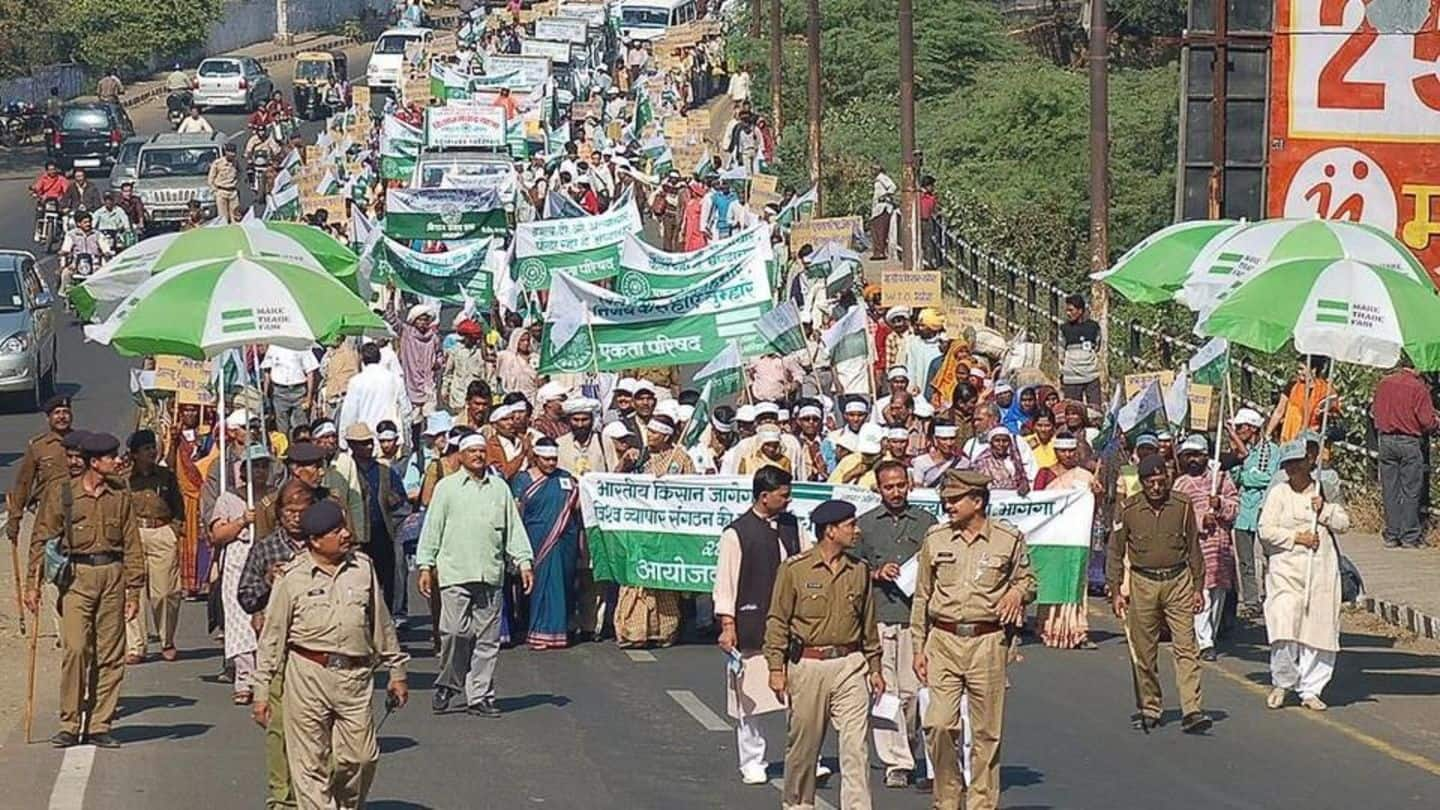
Now, Rajasthan may waive farm loans up to Rs. 50,000
What's the story
Rajasthan may waive farmers' loans following a 13-day farmer protest in the state. As per an HT report, the government decided to waive up to Rs. 50,000 after an 11-hour meeting. This move will put an additional burden of Rs. 20,000 crore on the state exchequer. A committee will study loan-waiver schemes in UP, Maharashtra, Punjab, etc and submit a report. Know more!
Demands
What were the farmers' other demands?
With loan waiver, the government agreed to increase the purchase of crops at minimum support price (MSP). As per media reports, farmers' pension will be raised from Rs. 500 to range between Rs. 2000-5000. Reportedly, the state government also agreed to remove the state's cattle sale ban and protect cattle traders. The state may announce the loan waiver as 2018 Assembly polls come closer.
Do you know?
Which other states have waived farm loans in recent months?
Recently, UP, Punjab, Maharashtra and Karnataka have waived over Rs. 85,000 crore of short-term crop loans. Farmer protests began after the 2016-17 harvest and demonetization-resulting cash crunch led to a drop in crop prices. Their main demands are loan waivers and competitive crop prices.
Inquiry
Do farm loan waivers actually benefit farmers?
As per latest official figures, about 22.1 million farmers in India depend on relatives or local money-lenders for credit. Hence, the loan waiver need not entirely benefit them. National Crime Records Bureau data on farmer suicides further shows a trend of decline in numbers post-loan waiver, followed by a hike in suicides after a short period as seen in states including Maharashtra and Telangana.
Analysis
If waivers don't fix anything, then what?
India's agricultural sector is plagued by issues including lack of proper storage and irrigation facilities and poor supply-chain infrastructure, which in turn magnify risks. A 2016 report authored by Chief Economic Advisor, Arvind Subramanian recommends for increased investments in state's procurement capacity, i.e. money available with the government to procure farmer's produce. It covers aspects including Minimum Support Price and lifting export bans.